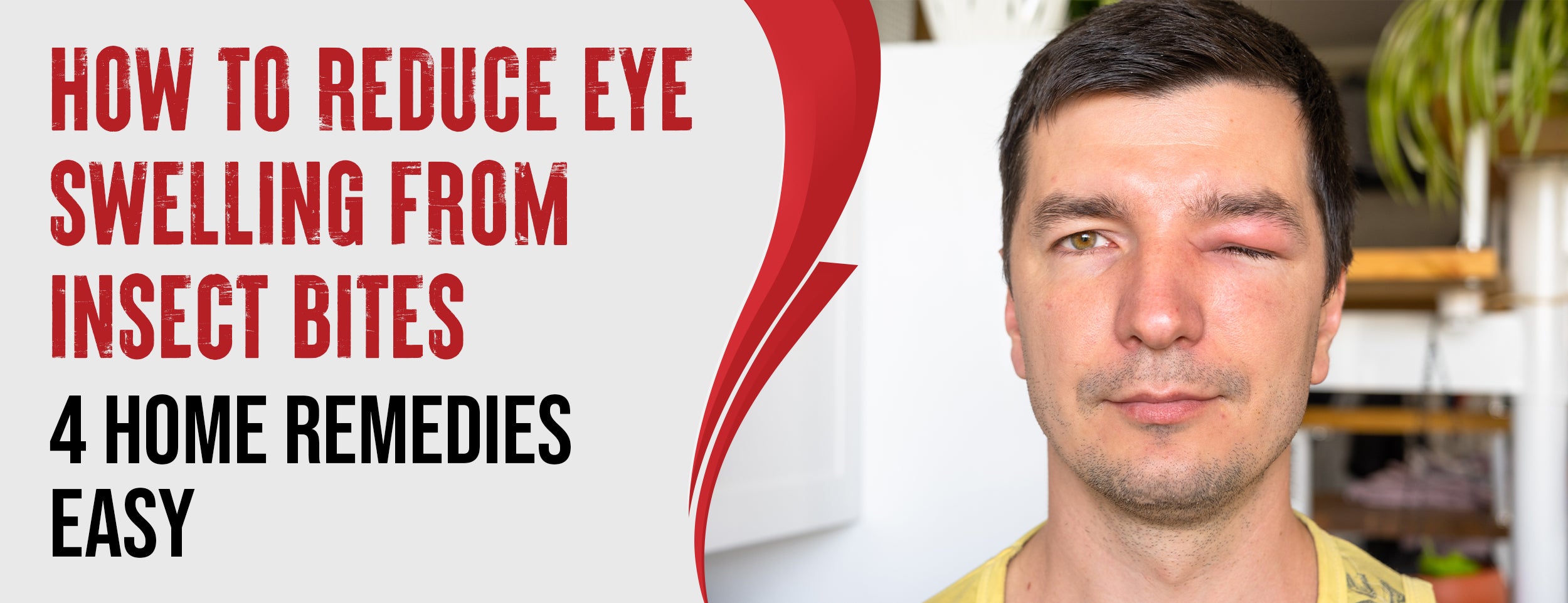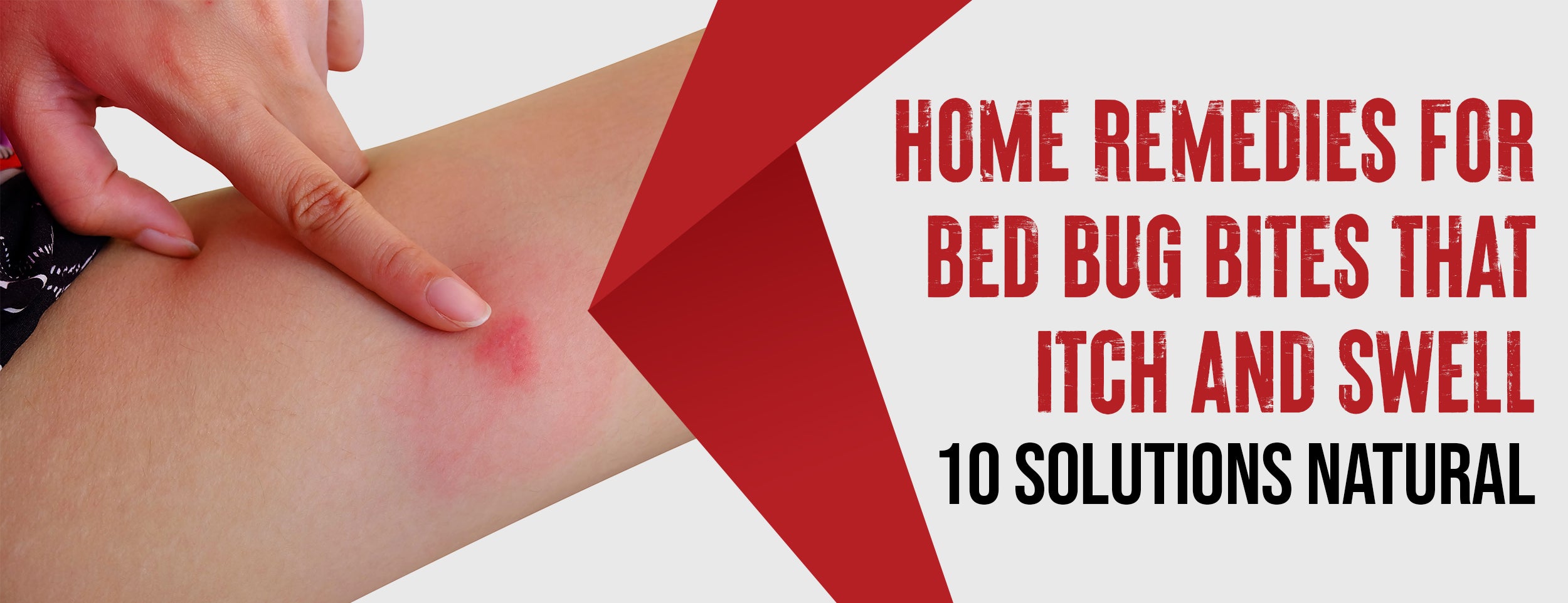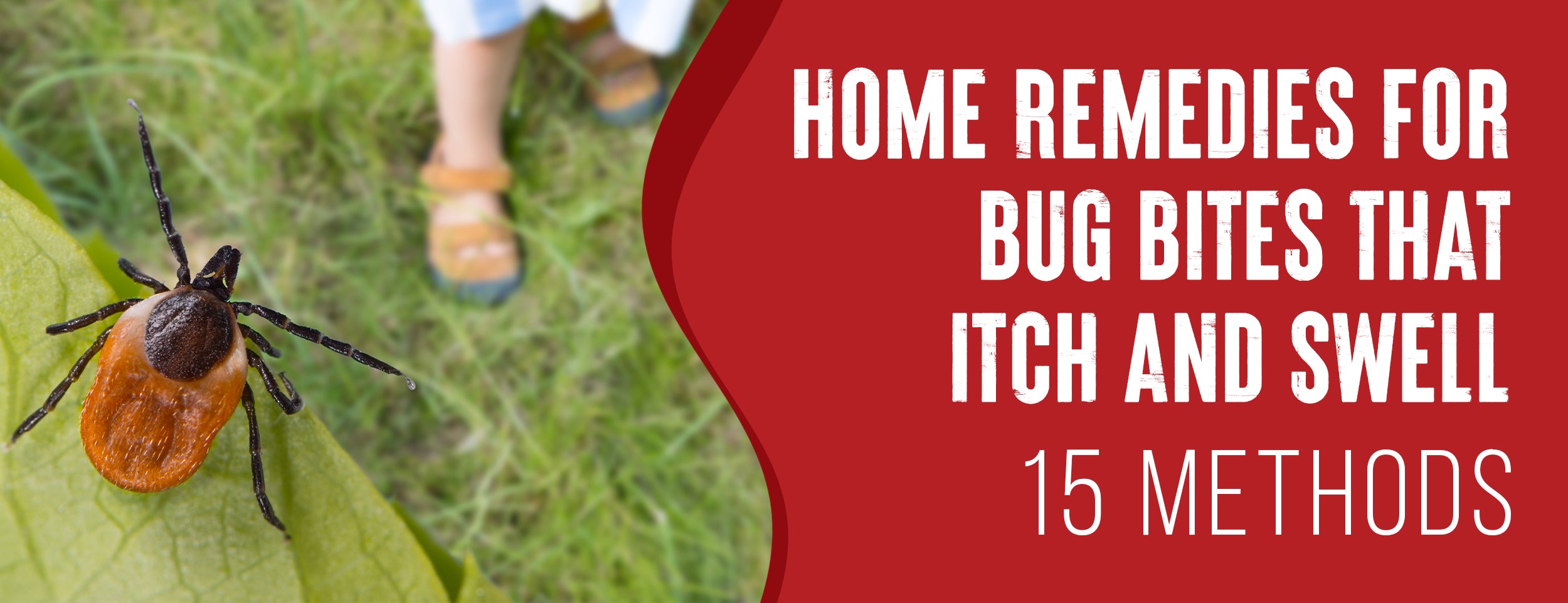Nighttime insect bites can have harmful effects beyond just disrupting sleep. Scratching the bite can cause damage to the skin, leading to longer-lasting scars and even bacterial infections. The deprivation of sleep can also cause stress and anxiety, which can cause chronic illnesses like hypertension.
Insect bites are caused by the release of cortisol by the body to combat inflammation, which results in itching. When we are low, our cortisol levels decrease, which causes us to itch more.
Our cortisol levels are higher in the morning, so most people itch more at night. When we try to fall asleep at night, we are less distracted and more focused on our itchiness.
In this blog post, we will discuss why insect bites itch more at night, reasons insect bites itch more at night, nighttime insect bites itchiness natural remedies, and the best over-the-counter medications for nighttime itch relief.
Why Do Insect Bites Itch More At Night: 6 Factors that Contribute
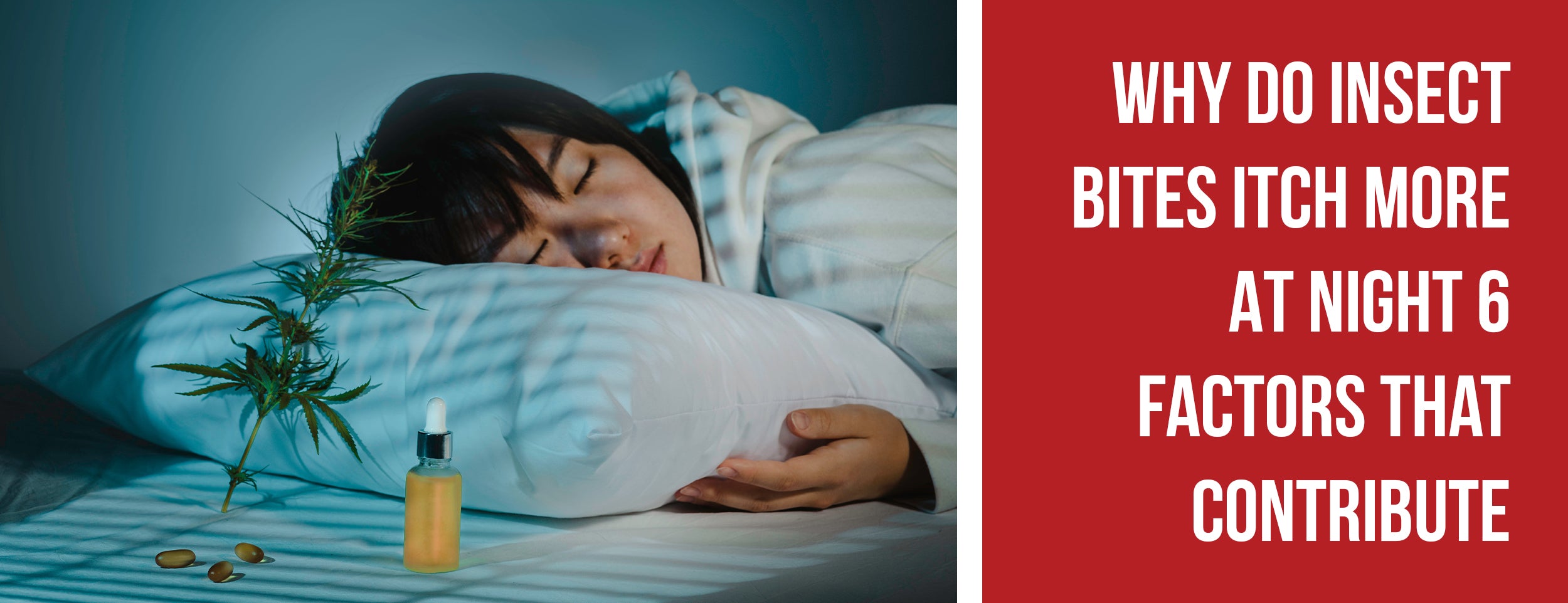
Itchy insect bites at night can cause frustration and lead to restless sleep. The science behind the body's physiological processes contributes to nighttime itchiness. Here are the factors that cause it:
Increase in Body Temperature
We are more active during the day, and our body temperature increases. This can help to reduce the intensity of itchiness from insect bites. However, our body temperature may rise slightly when resting at night. This may increase the power of itchiness caused by insect bites.
Reduction of Environmental Distractions
At night, there are fewer distractions in our environment. This can make us more aware of sensations on our skin, including the itchiness from insect bites. During the day, we may be distracted by work, friends, and other activities that can help to reduce our perception of itchiness.
Release of Histamines
When an insect bites us, our body releases histamines in response to the foreign substance injected into our skin. Histamines help our body fight off foreign substances and cause the skin to become red, swollen, and itchy. At night, our body may release more histamines in response to the bites, making them feel more intense.

Cortisol
A hormone called cortisol regulates our body's stress response. At night, cortisol levels are typically lower than during the day. This can make us more sensitive to itchiness caused by insect bites, causing them to feel more intense.
Increased Blood Flow
When we are at rest, our blood flow is more concentrated in certain body parts, such as our legs and feet. This increased blood flow can intensify insect bite itching in these areas.
Hormone Levels
Besides cortisol, other hormones such as testosterone and progesterone can also affect our perception of itchiness from insect bites. At certain times of the month, such as during menstruation, hormone levels can fluctuate, making us more sensitive to sensations of itchiness.
3 Natural Remedies For Alleviating Nighttime Insect Bites Itchiness
You suffer from insect bites and find that they itch more at night. Natural remedies can ease the itchiness caused by insect bites and help us sleep better. I'll share some practical and natural remedies that can help you get a more restful sleep at night.
Aloe Vera
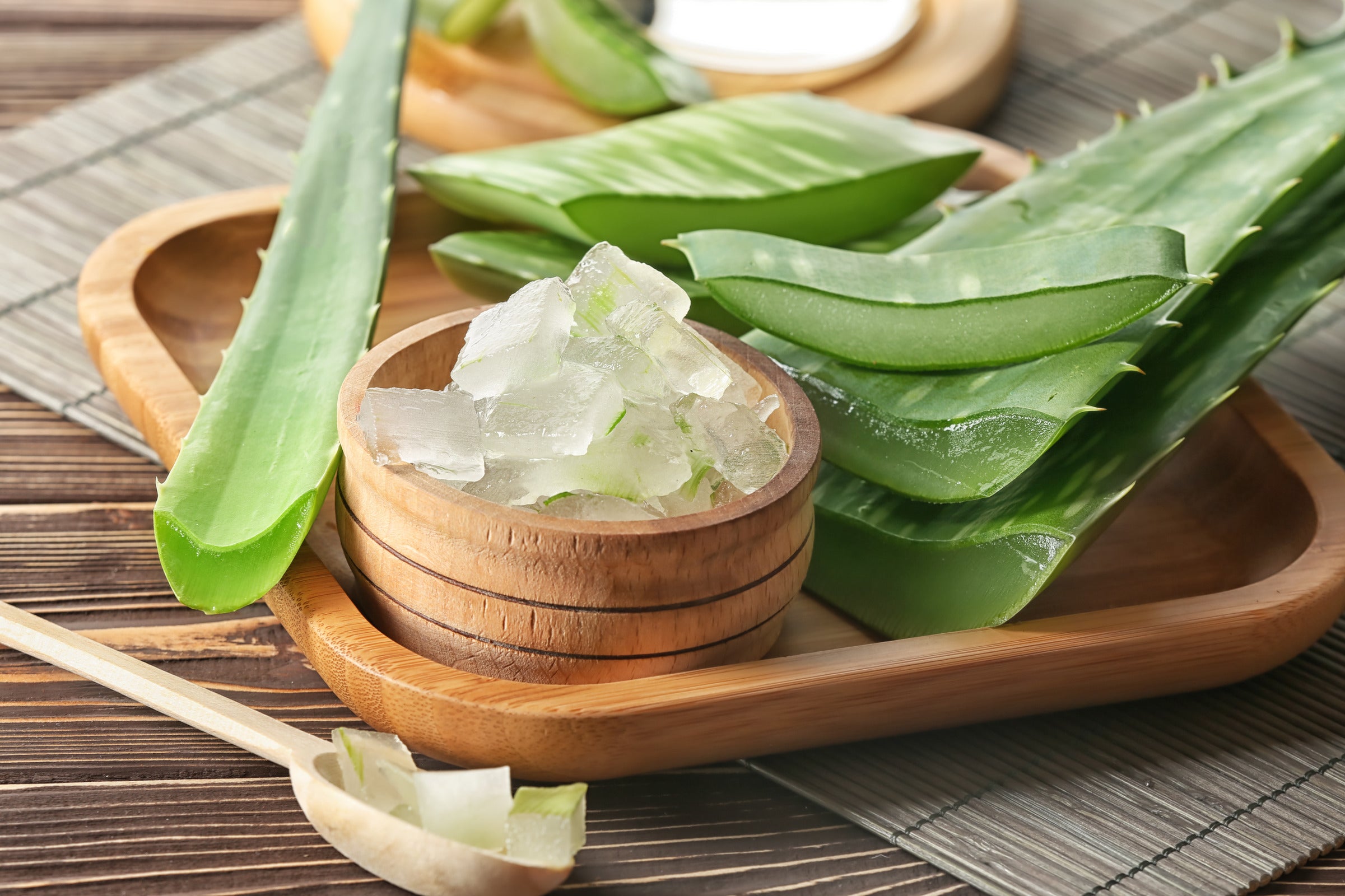
Aloe vera is a highly versatile plant that has many uses. Natural relief from itchiness caused by insect bites during the night. Aloe vera is known for its anti-inflammatory and soothing properties that can help relieve itching. Here's how to use aloe vera:
- Cut the tip of the aloe vera leaf and squeeze out the gel.
- Gel directly on the affected area before sleep.
- Leave it on for 15-20 minutes before rinsing it off.
Essential Oils
Essential oils are an excellent means of reducing itchiness caused by insect bites, especially at night. Various types of essential oils are available, depending on your preference. Some of the most effective essential oils for insect bites include:
- Tea tree oil.
- Lavender oil.
- Eucalyptus oil.
Baking Soda
Insect bites are the common ingredient in most kitchens that can relieve itching at night. It has alkaline properties that help balance your skin's pH levels and decrease itching. Here are some simple steps to follow when using baking soda for this purpose:
- A paste can be prepared by mixing one tablespoon of baking soda with water.
- Apply the mixture to the affected area.
- Leave it on for 10 minutes before rinsing it off.

3 Over-The-Counter Options For Nighttime Itch Relief
Insect bites can be an irritating problem, especially during the nighttime when the itchiness seems to intensify. Finding the proper over-the-counter relief is crucial. There are several options available that can help reduce the itching at night:
Antihistamines
Antihistamines work by preventing the histamine from binding to the receptors, ultimately reducing the allergic response in the body and relieving itching at night. There are different antihistamines available, ranging from sedative to non-sedative varieties.
Topical Corticosteroids
Topical corticosteroids work by reducing inflammation and itchiness by changing the immune response. Creams and ointments with corticosteroids can provide relief for mild to moderate itching.
Lidocaine Creams And Sprays

Lidocaine numbs the affected area, providing immediate relief from itching and burning. It is usually used for localized itching and is not recommended for extensive body areas before sleep.
Conclusion
Insect bites can be a nuisance, especially when they seem to itch more at night. However, you can still get a good night's sleep by understanding why this happens and taking simple steps to prevent scratching and reduce the itchiness.
Stay calm, avoid scratching, and take steps to soothe and heal your skin if a mosquito, an ant, or another insect has bitten you. With patience and care, you can soon end the pain of insect bites and return to enjoying your summer nights.

![6 Reasons Why Itches From Insect Bites Increase at Night [3 OTC Options]](http://drnumb.com/cdn/shop/articles/Why_Do_Insect_Bites_Itch_More_At_Night__6_Factors_4_Natural_Remedies.jpg?v=1709703294&width=1100)








